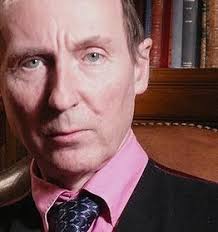Andrew (‘A.N.’) Wilson (http://en.wikipedia.org/wiki/Andrew_Wilson_(writer and http://www.nytimes.com/1992/10/18/magazine/the-busy-busy-wasp.html) offered us, in 1999, this study in the decline of religious certainty.
The book focuses on artists and intellectuals and covers Gibbon, Hume, Kant, Marx, Garibaldi, Bentham, George Eliot, Lenin, Tennyson, Carlyle, Darwin, Huxley, Shaw, Hardy, Hegel and Freud among others. Very good on the devastating sense of emotional loss that comes with the abandonment of faith. This is a feature which extends right down to our own times. If you want to understand how we’ve come to inhabit a predominantly secular culture, this is the book for you. The title is taken from a poem by Thomas Hardy (http://www.poemhunter.com/poem/god-s-funeral/). Furnished with a magnificent bibliography to follow up all the topics so fleetingly introduced.
Listen to Andrew Wilson speaking about The Age of Doubt in the BBC Radio 4 ‘In Our Time’ 30 minute episode. Available from the link http://www.bbc.co.uk/programmes/p00546pj Wilson is joined by Victoria Glendinning, author, journalist and biographer of Anthony Trollope and Jonathan Swift. Chaired by Melvyn Bragg. First broadcast Thursday 9 Mar 2000.
If this book stimulates an interest in atheism, follow up with this short selection of key works:
A shorter exercise in the assessment of the arguments is found in J.L. Mackie’s 1982 book
The Miracle of Theism. (reviewed by me here
http://sbr.lanark.co.uk/?p=2679 ) Mackie’s view is that, given the arguments and evidence, it is a miracle that theism (in any of its guises) can survive. This book has the reputation of having rattled decades of Divinity students.
Also recording the history of sceptical stances and the personal cost suffered by those brave enough to express them is Ludovic Kennedy in
All in the Mind: A Farewell to God. (1999,
http://www.amazon.co.uk/All-Mind-Farewell-Ludovic-Kennedy/dp/0340680636/ref=sr_1_4?s=books&ie=UTF8&qid=1455657135&sr=1-4&keywords=ludovic+kennedy) Kennedy examines the origins of gods from the earliest times, questions the reliability of both Old and New Testaments. He records the growth of European atheism from before the Reformation to the present. Interspersed with this, the author offers his often witty insights into how his own upbringing affected his thinking; and, in the final chapter, tells how he has found his own way to non-theistic spiritual fulfilment.
Sam Harris writes along similar lines in
The End of Faith: Religion, Terror, and the Future of Reason (2004,
http://www.amazon.co.uk/End-Faith-Religion-Terror-Future/dp/0393035158/ref=tmm_hrd_swatch_0?_encoding=UTF8&qid=1455712992&sr=8-4) This is a stark analysis of the clash of faith and reason in today’s world. Harris offers a vivid historical tour of mankind’s willingness to suspend reason in favuor of religious beliefs, even when those beliefs are used to justify destruction and heinous crimes. He asserts that in an era of nuclear weapons we can no longer tolerate views that pit one ‘true’ ‘god’ against another. He argues that we cannot even afford moderate lip service to religion. This is a concession that only blinds us to the real perils of fundamentalism. While warning against the encroachment of organized religion into world politics, Harris also draws on new evidence from neuroscience and insights from philosophy to explore spirituality as a biological, brain-based need. He calls on us to take a secular humanistic approach to solving the problems of this world. This is the only way we can save ourselves.
For a generous parcel packed with insight, and entertainingly written, no bookshelf should be without
The Portable Atheist (ed. Christopher Hitchens, first published 2007, 528 pages
http://www.amazon.co.uk/Portable-Atheist-Essential-Readings-Non-Believer/dp/0306816083/ref=sr_1_1?ie=UTF8&qid=1455519332&sr=8-1&keywords=portable+atheist) Includes pieces by Lucretius, Benedict de Spinoza, Charles Darwin, Karl Marx, Mark Twain, George Eliot, Bertrand Russell, Emma Goldman, H. L. Mencken, Albert Einstein, Daniel Dennett, Sam Harris, Richard Dawkins, Salman Rushdie, Ian McEwan, and Ayaan Hirsi Ali. A treasure and a pleasure one returns to time and again.
If you can shake yourself free of these ancient impulses you may not be happier but you’ll be less deceived (book reviewed by me here
http://sbr.lanark.co.uk/?p=2643) Battle the gods and win.
=====================================
Check if this title is in stock in your local library by consulting the online catalogue here Home | South Lanarkshire Libraries (sllclibrary.co.uk)
God’s Funeral
544 pages in Abacus paperback edition.
ISBN 978-0349112657

Andrew (‘A.N.’) Wilson


